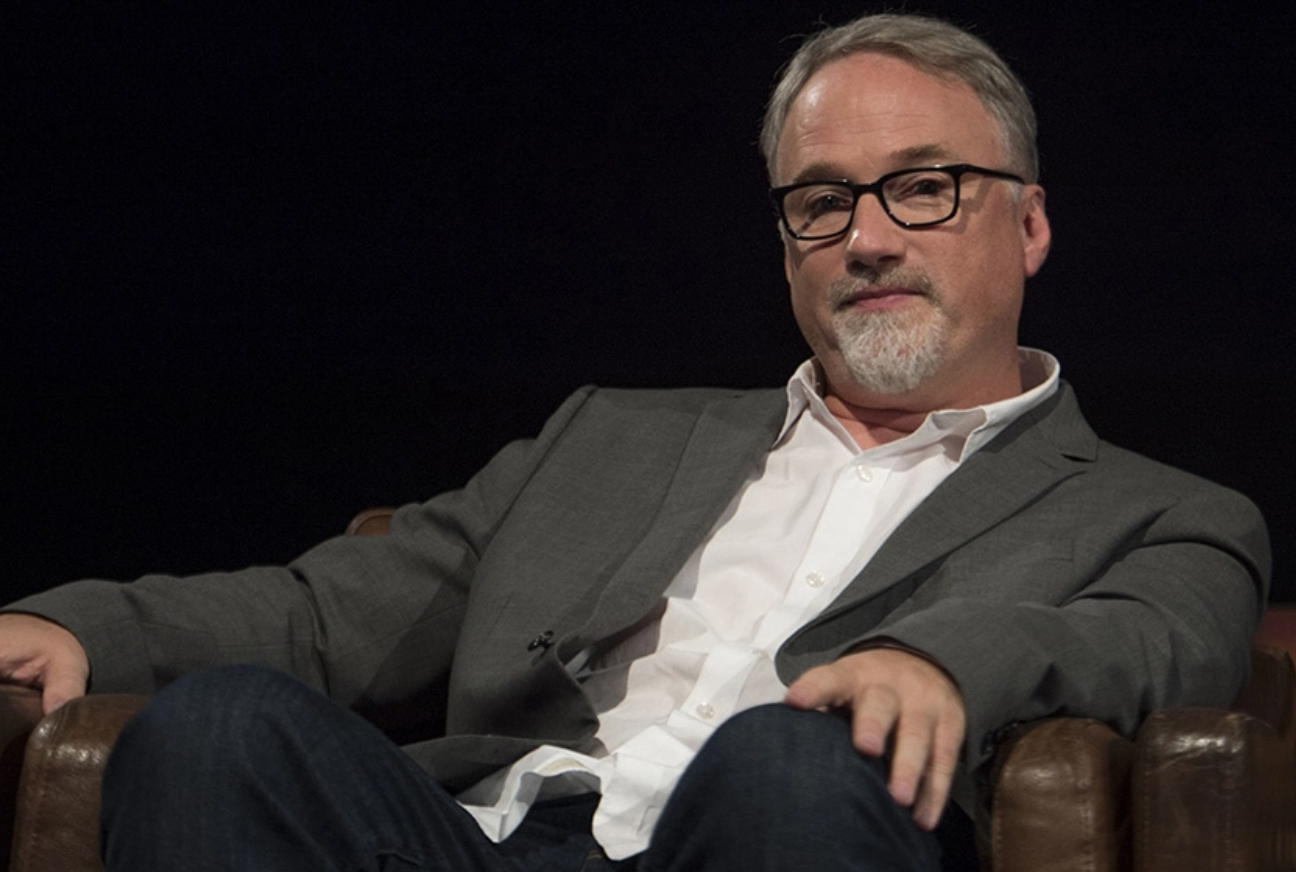Last weekend David Fincher visited South by Southwest to talk about Love, Death and Robots (Netflix, 3.15), an “anthology animated short series made by different artists from around the world” blah blah.
I’m a stone worshipper of Mindhunter, the 2017 series that Fincher produced and partly directed (and which will re-launch with a second season later this year), and I definitely enjoyed the Fincher-produced House of Cards for the first couple of seasons. But I wouldn’t watch Love, Death and Robots with a knife at my back. Because in my mind an “anthology animation short” series is Otto Ludwig Piffle…take-it-or-leave-it esoterica for animation oddballs and navel gazers and guys who avoid sunlight and regular pedicures, and who look and behave like Pete Davidson and wear skeleton-feet sneakers.
Remember the old David Fincher? The guy who was one of the most dynamic, innovative, forward-reaching directors of narrative features (on the level of Soderbergh, Cuaron, Inarritu and Kubrick) and who was slugging it out in the boxing ring and at least trying to make stuff that really mattered? That Fincher has now retreated into a kind of Netflix cave. He hasn’t made a theatrical feature in over four years, close to five. The good but vaguely underwhelming Gone Girl (’14) was his last theatrical effort.
If you ignore Alien 3 (which I advise everyone to do), Fincher was on the feature-film stick for 19 years, and made four world-class knockouts — Seven (’95), Fight Club (’99), Zodiac (’07) and The Social Network (’10). He also made four above-average, stylistically-striking popcorn films — The Game, Panic Room, The Girl With The Dragon Tattoo and Gone Girl. I’m not calling The Curious Case of Benjamin Button a stinker, but I’ll never, ever watch it again.
Why is Fincher more or less hiding in his little Netflix cave? He’s following his heart and his muse, and I’m sure that’s a satisfying place to be, but what about the devout fan base (i.e., persons like myself?) It’s like Fincher has decided he can’t be “David Fincher” any more…like that was a phase and now he’s past it.
He obviously no longer believes in theatrical narratives. Because Hollywood itself no longer believes in same, and because the zombie executives won’t greenlight anything even remotely original, and because Fincher won’t make formulaic crap. And so he’s operating out of his own little creative bunker. He’s not even doing a Soderbergh — making modest but original features, working with Netflix but exploring new distribution schemes, shooting on iPhones, etc. He’s working and living in a realm that allows for creative freedom, but the absence of the old Fincher breaks my heart.
If Fincher is trying to get anything made in the realm of narrative features, I haven’t heard of it. Has he totally bailed or is there something he’s developing that might actually become something? I’m asking.
A Fincher fan calls my opinion “bullshit” and insists that Fincher “has transformed the entire landscape of film forever. House of Cards changed the game for Netflix, for Hollywood. He has single-handedly transformed the business by transforming Netflix. The stuff he’s been doing is brilliant. He just prefers to work within the confines of creative freedom rather than the bullshit constraints of Big Hollywood. He’ll make another movie when he finds something worth doing, as all great directors do.”
My response is that no matter how you slice it, Fincher has been effectively out of the feature film game for four and half years. He’s backed away, given up on the big arena, and decided to live and create out of his own little streaming gopher hole.

